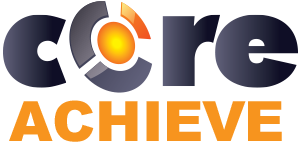Agile Learning with Micro-Certifications and an LMS
May, 02 2023
Other posts:
Enhancing Team Dynamics for Effective Group Decision-Making with LMS Integration
Organizations increasingly rely on collaborative efforts to solve complex problems, innovate, and adapt to change, but how do we ensure that collaboration is happening.
Maximizing Small Business Potential with Training Technology
Training technologies can push small businesses ahead of their competitors, but what are the factors that go into choosing the right technology?
Unlocking Employee Potential: The Transformative Benefits of an Interactive Learning Management System (LMS)
Interactive training allows for unlocking employee potential, but how is it done?
Building a Robust Sales Pipeline with Training
Every organization wants a streamlined sales pipeline, but building one requires a series of interlocking activities with one of the most important being training.
Strategies for Adapting In-Person Training to Online Platforms
Online training is one of the most flexible ways of delivering training across organizations, but how do you even begin to adapt in-person training into online?
Does your organization want to the ability to evolve and use new skills to their advantage? Micro-certifications can help an organization streamline the process of upskilling, but this streamlining can only be done realistically with an LMS.
Micro-certifications are a rapidly growing trend in the world of learning and development. These bite-sized, competency-based credentials are quickly becoming a popular way for people to learn or demonstrate their skills in specific areas. One of the most effective ways to offer micro-certifications is through a Learning Management System (LMS).
Micro-certifications are certifications for specific skills. Rather than a broader degree, micro-certifications guarantee knowledge and competency in skills.
The Benefits of Micro-Certifications
The most obvious benefit of micro-certifications is that they are specific enough to accurately depict someone’s skills with much less ambiguity. For example, with a degree or more traditional certification program, two people with the same title could vastly differ. Having micro-certifications will allow an organization to know quickly who has what skill.
Another benefit of micro-certifications is that they allow individuals to focus on specific areas of interest. Rather than committing to a full degree or certification program, individuals can choose to pursue micro-certifications in areas that align with their career goals and interests. This not only allows individuals to acquire new skills but also helps them build a unique and diverse set of competencies. Furthermore, the specificity of micro-certifications may lead to faster training times than traditional programs.
Allowing people to choose from a diverse set of skills and micro-certifications may seem difficult to administer, but using an LMS will give the chance for an organization to accrue a repository of skills over time.
Upskilling is a key possibility of micro-certifications, as they provide a quick and cost-effective way for learners to acquire new skills in the rapidly changing job market. Technologies like AI and automation are the newest disruptors, but there will be more in the future and implementing a system for micro-certifications can ensure organizations can gain a competitive skills lead.
Using an LMS for Micro-Certification
An LMS offers an efficient and effective way to create, deliver, and manage micro-certification programs. The flexibility of an LMS means that learners can complete the coursework and assessments on their own schedule, from anywhere in the world. A platform like CoreAchieve also offers a range of tools and features that make it easy to track progress, provide feedback, and issue certificates of completion.
Without an LMS, a broad selection micro-certification would be very difficult for an organization to implement on a systematic level. Trainers would have to be well-versed in potentially hundreds of skills and keep a paper trail of who-learnt-what. The other option being homemade courses that can vary wildly in professionalism, quality, and outcomes.
The upsides from micro-certifications like having an agile, up-to-date workforce and a complete idea of what skills people know are only realistic whenever pair with system that can record and deliver the necessary content, like an LMS.
Staying Competitive with Evolving Talent
From an employer perspective, micro-certifications are a valuable way to identify and develop talent within an organization. By offering micro-certification programs, employers can provide their employees with targeted training and development opportunities, without the need for expensive and time-consuming training programs. This can help employees feel valued and invested in, leading to increased engagement and retention.
Micro-certifications are also becoming an increasingly popular way for employers to assess candidates during the hiring process. By requiring candidates to have specific micro-certifications, employers can ensure that they are hiring individuals with the skills and knowledge needed to perform the job at a high level.
In conclusion, micro-certifications are a powerful tool for individuals and organizations looking to stay competitive in a rapidly changing job market. By leveraging the power of an LMS, it's easy to create and manage micro-certification programs that provide learners with targeted training and development opportunities. With the flexibility and convenience of an LMS, learners can complete the coursework on their own schedule, from anywhere in the world. Micro-certifications are an effective way to demonstrate skills and knowledge, providing individuals with a valuable credential that can help them stand out in a crowded job market.
Get started with CoreAchieve for free.
Photo by Lewis Keegan on Unsplash

Leave comment: